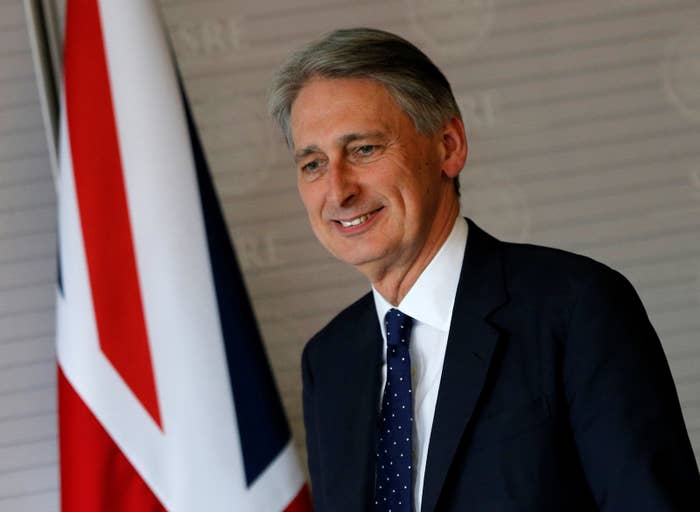
The German government has flatly rejected an assurance given by UK foreign secretary Philip Hammond to MPs that he would hold informal talks with his European counterparts on 17 July on the possibility of a deal over reciprocal migrant rights for EU and UK citizens.
Hammond claimed on Thursday he would raise the matter over dinner with EU foreign ministers next Sunday. He was being questioned by the Commons foreign affairs select committee about whether the government would guarantee the right of EU citizens already in the UK legally to remain after Brexit.
Hammond says he will hold informal talks with fellow EU foreign ministers on Sunday to discuss reciprocal migrant rights in EU and UK.
But less than 24 hours later, the German government told BuzzFeed News unequivocally that Hammond's claim was wrong. "There will be neither informal nor formal discussions on the exit of the UK from the EU until the European Council has received the UK’s official request," a spokesperson said.
Later on Friday, French government sources underlined the same point to BuzzFeed News. They said that France's position remained the same as outlined by EU member states at the end of June: the UK’s withdrawal must be done in “an orderly fashion” according to the terms of departure set out by the treaties, and there can be “no negotiations of any kind” before formal notification has taken place. The source also said that any future arrangement, which would be concluded with the UK as a third country, would need to balance “rights and obligations.”
Hammond told the committee EU nationals remained welcome in the UK and that he recognised their "vital contribution". But the British government has come under criticism from across the political spectrum for saying the future status of the 3 million EU nationals in the UK cannot be guaranteed and will be subject of negotiation with the EU's remaining 27 member states.
That position, shared by Tory leadership frontrunner Theresa May, has led to accusations that EU nationals were being used as bargaining chips.
On Thursday Hammond appeared to place the blame for the impasse on the EU. He said: “It’s Brussels that has said until Article 50 is served, we can’t start discussions.
“If the bureaucrats in Brussels would say today we are happy to sit down and talk to the UK government about a deal that assures the mutual rights of citizens in each other’s countries, I’m sure the UK would be happy to engage in this process.”
The negotiating line, however, is not unique to the EU's institutions. It is shared by its 27 member states. A spokesperson for the European Council, which represents the EU heads of state and government, said the line of the remaining 27 was very clear: "no negotiations of any kind before Article 50 notification".
Asked about the German government's statement, a UK Foreign Office spokesperson told BuzzFeed News: “The foreign secretary told the foreign affairs committee he will hold informal talks with his EU counterparts on the outcome of the referendum at a dinner on July 17. He will have the opportunity to raise a number of important issues.”
Officials on both sides are keen to stress that the UK is still a fully fledged member of the EU and that the rights of EU nationals in Britain, and those of Britons elsewhere in the EU are unaffected for now. "Since the UK is still a part of the European Union, the rights of British citizens living and working in Germany remain the same," a German foreign ministry spokesperson said.
